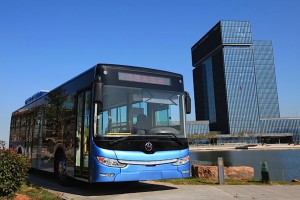Don’t look now but the price of batteries packs are coming down.
Battery cell costs will fall about 8% a year, according to a Stockholm Environment Institute study that found battery costs have been overestimated. Cells for electric vehicles fell about 14% a year from 2007 to 2014, according to the study.
Battery electric vehicles (EVs) are one of the key alternatives to gas- and diesel-driven vehicles. The costs of battery cells has always been one of biggest obstacles to the development of EVs, forcing manufacturers to trade off between a model’s price and the range it can travel on a single charge, the institute reported.
Based an analysis of more than 80 separate estimates of the costs of lithium-ion battery cells, which are commonly used in EV battery packs, the study found that estimates fell from more than $1,000 to around $410 per kilowatt-hour during 2007 and 2014.
Battery costs for EV market leaders Nissan and Tesla were found to be even lower, at around $300 per kWh. Many analyses, especially academic analyses, of the future market potential of EVs could thus be based on significant overestimates of battery costs.
The study also shows that the rate of technological development, the learning and knowledge gained as more and more batteries are produced, has had a clear influence on costs, as would be expected: a cost reduction in the range 6-9% following each cumulative doubling of production.
The authors suggest that continued declines of around 8% per year are likely, even without major advances in battery chemistry. However, there are large uncertainties in the calculations, as they are based on only a few years of EV development.
Navigant Consulting Inc. also recently told Bloomberg battery packs for electric vehicles, loaded with lithium-ion cells, now cost around $496 a kilowatt-hour, a 60% drop from 2010. That could plunge to $175 within five years, according to Sam Jaffe, an industry analyst with Navigant Consulting Inc.
Meanwhile, investment money continues to flow into battery plants despite the slow EV sales.
(Tesla Model S nearly ready to drive itself. For more, Click Here.)
XALT Energy LLC, based in Midland, Michigan, signed an agreement with Hybrid Kinetic Group, also known as the HK Group, of China for the supply of its Lithium Titanate batteries from its manufacturing facilities in Michigan for all‐electric buses in China. Production is expected to begin during the third quarter of 2015.The multi‐year contract, valued at more than $1 billion, will create 300 jobs this year.
Dr. Yung Yeung, chairman of HK Group, said, “XALT’s high quality and cost competitive battery product fit very well with our group’s strategy of launching all‐electric public transit buses in large scale with our unique business model. This supply relationship is a fine example of Sino‐American energy cooperation.”
(Click Here for details about the ePrix searching for the right formula.)
“It has always been our objective to enable electrification of global transportation markets since we ventured into the battery industry several years ago,” said Dennis Townsend, chairman of XALT. “Today’s signing of the exclusive supply agreement with the HK Group witnesses a significant step forward towards that goal.”
The electric buses will be fully powered by XALT batteries. Each bus will have 68‐100 KWh high performance rapid charging batteries, which can be recharged in less than 10 minutes. These electric buses will be leased to municipal transit operators throughout China
(To see more about Mercedes planning to launch 10 plug-ins by 2017, Click Here.)
The new, technologically advanced electric buses will reduce greenhouse gas emissions compared to current diesel powered buses: a major focus in China right now.


Battery cost is important but also the size and weight of batteries limits the practicality of EVs. Larger vehicles like local delivery trucks, buses, etc. might be viable EVs if the cost and maintenance provides a realistic TCO.